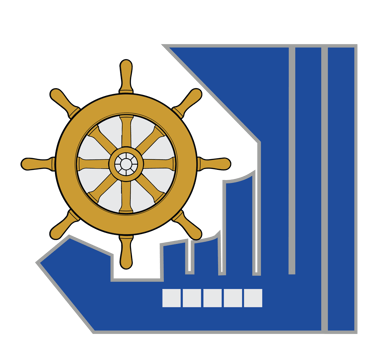Pre-Arrival Requirements:
Appoint a Local Agent: Before arriving at a Libyan port, ships must appoint a local shipping agent to facilitate communication and compliance with local regulations.
Document Submission: The ship owner or agent must submit the following documents to the port management at least 24 hours prior to the Estimated Time of Arrival (ETA):
Completed and Signed Forms 1-11
Copy of Bills of lading and Cargo manifest including the weight and volume of the cargo.
Copies of:
- International Ship and Port Facility Security (ISPS) Code Certificate
- Ship Registry Certificate
- Radio Safety Certificate
- Safety Equipment Certificate
- Safety Construction Certificate
- Classification Society Certificate
- International Oil Pollution Prevention (IOPP) Certificate
- International Load Line Certificate
- International Tonnage Certificate
- International Safety Management (ISM) Code Certificate
- Document of Compliance (DOC)
- Minimum Safe Manning Certificate
- Insurance Certificate
- Ship Sanitation Control Certificate
- Medical Store List
- Latest Port State Control (PSC) Inspection Report
On board required Ship Documents:
Certificate of Registry and Tonnage
Load Line CertificateInternational Shipping Certificate
Passenger Transport Certificate
International Certificate for the Safety of Life at Sea (SOLAS)
Radio and Telex Safety Certificate
Crew List (including nationalities)
Passenger Manifest (signed-on and signed-off)
Cargo Manifest
Arrival Procedures:
VHF Channel 16: Before entering Libyan territorial waters, the ship must contact the port control on VHF Channel 16.
Signaling: Upon approaching the anchorage, the ship must display the following signals:
- Call sign
- Quarantine flag
- Ship's flag at the stern
- Libyan flag at the bow
- Red flag during the day and red light at night (if carrying explosives or flammable materials)
- Pilot request signal
Pilot Boarding: The ship must not enter the entrance channel until the pilot has boarded.
Health Declaration: If the master suspects any infectious disease on board or if the ship has come from a port affected by a pandemic, they must immediately inform the quarantine or port authority upon arrival.
Berthing and Sailing Procedures:
Master's Responsibilities: The master must be on the bridge during arrival, departure, and while the ship is berthed. They must comply with all local and international laws.
Berthing Priority: Berthing priority is generally given to the first ship to arrive, with the following order of preference:
- Passenger vessels
- Livestock carriers
- Liner vessels
- General cargo vessels
- Tankers
Port Management Authority: The port management authority will assign the berth and may relocate the ship for operational efficiency.
Anchorage: Ships without a suitable berth may be anchored, but they must not move without port authority permission
Shifting Berth: Ships cannot shift berths without port authority permission. The master is responsible for ensuring the suitability of the new berth.
Compulsory Tonnage: Tug assistance is mandatory for entering or leaving port through tunnels or during shifting operations.
Pilot Services: A pilot is mandatory for entering or leaving port.
Master's Responsibility: Even with a pilot on board, the master remains responsible for the ship's navigation.
Liability: The ship owner is liable for any damage caused, even if the pilot was at fault.
Pilot Fees: Pilot fees must be paid, even if the entry or departure is canceled.
Cargo Manifest: The cargo manifest must include weight and volume in Cubic meters. A copy must be submitted to the agent 24 hours before arrival.
Restrictions and Interdictions:
Repairs and Maintenance: No repairs or maintenance work can be carried out without port authority permission.
Chimney Cleaning: Chimney cleaning is prohibited while in port.
Lighting: No lights can be altered without port authority permission.
Waste Disposal: Discharging waste, including oil, chemicals, or garbage, into the port or territorial waters is strictly prohibited.
Currency and Personal Items: Currency, cigarettes, and alcohol must be declared.
Prohibited Activities: Prostitution, possession of alcohol (except sealed and stored), and unauthorized photography are strictly prohibited.
Ship-to-Ship Visits: Ship-to-ship visits require customs and immigration approval
